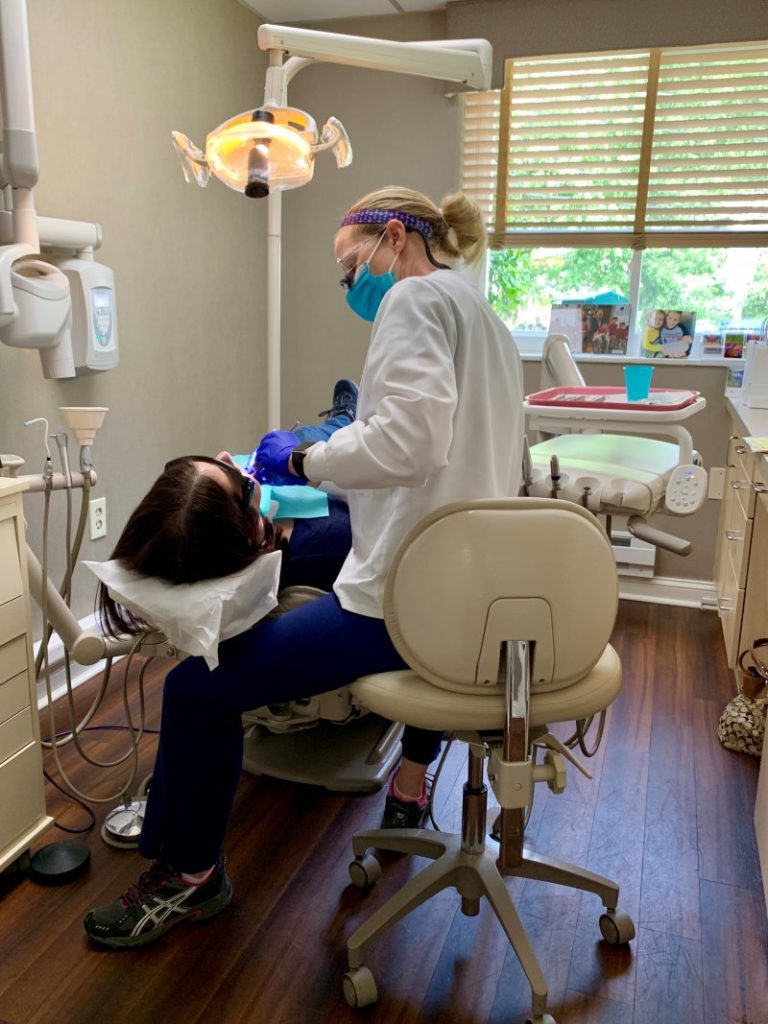
There is mounting evidence showing that the mouth and body are closely interwoven. When a problem occurs in one area, there is a good chance that an issue will develop in the other. One example of this is how gum disease and tooth loss can lead to an increased risk of cognitive decline. If you are an individual who is concerned that your oral hygiene habits may be causing you to be more vulnerable to common neurological diseases like dementia or Alzheimer’s, a dentist in Greenbelt, MD, explains how flossing may be the answer to decreasing your risk and improving your oral and overall health.
The Reasons for Cognitive Decline in Aging Populations
Researchers at NYU Rory Meyers College of Nursing recently discovered that adults with one or more missing teeth were at a greater risk for cognitive impairment. Why? Many factors can contribute to the increase in cases of dementia and Alzheimer’s and to better understand them, a more thorough explanation is provided below:
Nutritional Deficiency
When patients are living with one or more missing teeth, they are unable to eat a healthy, nutrient-rich diet. This is especially true for individuals who are missing multiple upper and lower teeth. Consuming fruits, vegetables, leafy greens, dairy, and lean proteins not only delivers the beneficial nutrients a person needs for their oral cavity but also their brain and body. Without appropriate prosthetics like dental implants restored with crowns, dental bridges or dentures, it can become increasingly difficult to eat the appropriate foods and maintain better physical and mental health.
Lack of Confidence
A person’s view of themselves can positively or negatively impact their mental state. If they do not have a full, complete, and functional smile, their confidence can diminish. As a result, they may become less motivated to take care of their oral and overall health. Declining health often leads to becoming less engaged in an active life and can lead to a decline in cognitive abilities. Replacing missing teeth with dental implants restored with crowns, dental bridges or dentures can enhance confidence and appearance. Quality of life is better with a healthy smile.
Gum Disease
When bacteria attack the oral soft tissues of the mouth, it causes redness, inflammation, and bleeding when brushing and flossing. If left untreated, the infection will begin to destroy the bone and lead to tooth loss. If oral inflammation enters the bloodstream, it can travel to various areas throughout the body, including the brain, which may be related to cognitive decline. This is why dentists continually urge patients to practice good flossing habits at home to remove harmful bacteria and food particles that can cause gum disease to develop.
Limited Access to Dental Care
Individuals who live in underprivileged areas, as well as those who simply do not have the same kind of access to high-quality dental care, can be at risk for poor oral hygiene, tooth loss, and an increased risk for cognitive decline. Without healthy food, proper education, access to health and dental care, people are more prone to develop chronic problems that negatively impact their mouth, body, and brain.
Ways to Reduce the Risk of Cognitive Decline
As dentists learn more about the effects of tooth loss and gum disease, it is important to share this information to motivate patients to be proactive about their oral health. A few tips that can help lower the risk of cognitive decline in the future include:
- Flossing at least once a day to eliminate bacteria and food particles that can cause gum disease and eventual tooth loss
- Eating a nutrient-rich diet and avoiding sugars and simple starches that commonly cause tooth decay and gum disease
- Seeing a dentist every six months for regular checkups and cleanings
- Replacing missing teeth as soon as possible to improve physical and mental health
Establishing good oral habits early on is one of the most effective ways to prevent tooth decay, gum disease, halitosis, and many other health-related conditions. The team at The McCarl Dental Group is ready to provide educational information to ensure patients of all ages understand the benefits and importance of maintaining good oral health throughout a lifetime.
About the McCarl Dental Group
The McCarl Dental Group consists of dentists, dental hygienists and advanced function dental assistants who are highly educated and trained. We are committed to helping patients living in Greenbelt, MD, and its surrounding areas achieve their dental health goals. Providing exceptional preventive dentistry services to stop oral health problems before they start, our team is here to help our patients learn how to decrease and hopefully prevent tooth decay, gum disease, and other common dental issues. We’re also available to provide tips and recommendations to help individuals take the necessary steps to avoid cognitive decline, heart disease, and other common health problems. If you want a dentist you can trust, call our dental office today.
